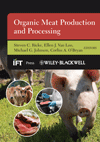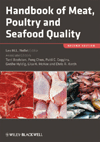Scientists from the University of Maryland and other universities looked at 10 mid-Atlantic farms that had adopted organic practices, reports NPR. They measures the levels of enterococci bacteria against 10 conventional farms in the same area.
"We were surprised to see such dramatic differences in the levels of antibiotic-resistant bacteria in the very first flock at these organic farms," said Amy Sapkota, assistant professor of environmental health sciences.
For one common antibiotic, erythromycin, 67 percent of an Enterococcus bacterium from conventional poultry farms were found to be resistant, while 18 percent were resistant at the organic farms. But Sapkota notes that organic farms usually still have "reservoirs" of resistant bacteria that can linger in the soil or the packed dirt floor of the poultry houses, so they may never be completely free of the bugs.
Source: NPR







